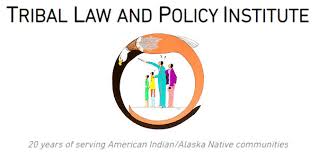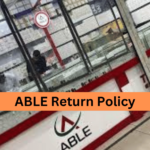The Tribal Law and Policy Institute (TLPI) stands as a beacon of hope and empowerment for Native American and Alaska Native communities across the United States. Founded with the mission to enhance justice systems and strengthen tribal sovereignty, TLPI has become an indispensable resource for tribal nations, legal professionals, and policymakers alike. This blog post will delve into TLPI’s crucial work, exploring its various initiatives, resources, and the significant impact it has on tribal law and policy.
What is the Tribal Law and Policy Institute?
The Tribal Law and Policy Institute is a Native American-operated non-profit organization dedicated to providing education, research, training, and technical assistance for Native nations and tribal justice systems. Established in 1996, TLPI has become one of the most respected and influential organizations in tribal law and policy.
Core Mission and Values
TLPI’s mission is rooted in the belief that Native nations have the right and responsibility to build and maintain their institutions for the benefit of their people. The institute works tirelessly to:
- Enhance and strengthen tribal sovereignty.
- Improve tribal justice systems.
- Promote the well-being of Native communities.
- Provide culturally appropriate resources and training.
Key Areas of Focus
TLPI’s work spans a wide range of critical areas, including:
- Tribal court development
- Domestic violence and sexual assault prevention
- Child welfare
- Juvenile justice
- Tribal-state collaborations
- Traditional justice practices
The Tribal Court Clearinghouse: A Comprehensive Resource
One of TLPI’s most significant contributions to tribal law is the Tribal Court Clearinghouse website. Established in June 1997, this online resource has become invaluable for tribal justice systems, service providers, and anyone interested in American Indian and Alaska Native legal issues.
Features of the Tribal Court Clearinghouse
- Extensive Legal Resources: The website provides access to tribal, state, and federal laws relevant to Native American communities.
- Subject-Matter Expertise: Users can find in-depth information on various Indian Country topics.
- Training Calendar: A regularly updated calendar of pertinent training events and workshops.
- Webinar Archive: Access to recordings and materials from past TLPI webinars.
- Searchable Databases: Easy-to-use databases for finding specific legal information and resources.
TLPI’s Impact on Violence Against Women Act (VAWA) Implementation
TLPI has been at the forefront of efforts to implement and expand tribal jurisdiction under the Violence Against Women Act (VAWA). Their work in this area includes:
- Creation of TribalVAWA.org: A dedicated website providing resources on VAWA Special Tribal Criminal Jurisdiction.
- Publication of Guidance Materials: TLPI has produced comprehensive guides to assist tribes in implementing VAWA provisions.
- Support for the Intertribal Technical-Assistance Working Group (ITWG): Facilitating collaboration between tribes exercising VAWA jurisdiction.
TLPI’s Response to Contemporary Challenges
COVID-19 Resources
Recognizing the unique challenges posed by the COVID-19 pandemic to Native communities, TLPI launched a dedicated Indian Country COVID-19 Resources Page. This clearinghouse provides:
- Tribal-specific health information
- Federal and state resources
- Economic impact assistance guidance
- Best practices for tribal governance during the pandemic
Addressing Historical Trauma: Boarding School Resolution
TLPI has been instrumental in raising awareness about the lasting impacts of the American Indian and Alaska Native boarding school system. Their efforts contributed to the American Bar Association’s adoption of a resolution addressing this historical trauma.
TLPI’s Educational Resources and Publications
TLPI is renowned for its high-quality publications and educational materials, essential resources for tribal justice systems and academic institutions.
Key Publications
- “Structuring Sovereignty: Constitutions of Native Nations“: A comprehensive guide to constitution-drafting for Indigenous nations.
- “Sharing our Stories of Survival: Native Women Surviving Violence“: A vital textbook addressing violence against Native women.
- “Introduction to Tribal Legal Studies“: A foundational text for understanding tribal justice systems.
- “Tribal Criminal Law and Procedure“: An in-depth examination of criminal law in tribal contexts.
These publications demonstrate TLPI’s commitment to providing culturally relevant, academically rigorous resources that empower Native communities and educate the broader public about tribal law and policy.
TLPI’s Collaborative Approach
One of TLPI’s strengths is its collaborative approach to addressing complex issues in Indian Country. The institute regularly partners with:
- Tribal governments and justice systems
- Federal agencies
- State governments
- Academic institutions
- Non-profit organizations
This collaborative model allows TLPI to leverage diverse expertise and resources, ensuring its work is comprehensive, relevant, and impactful.
Read More
Law Firm Policies and Procedures
Online Shopping Return Policy Law
Colorado Center on Law and Policy – CCLP
The Future of TLPI and Tribal Law
As Native nations assert their sovereignty and strengthen their justice systems, TLPI’s role remains crucial. Looking to the future, TLPI is likely to focus on:
- Expanding tribal jurisdiction
- Incorporating traditional justice practices into contemporary systems
- Addressing emerging issues such as climate change impacts on Native communities
- Enhancing tribal-state-federal collaborations
Conclusion
The Tribal Law and Policy Institute is a testament to the resilience and determination of Native American and Alaska Native communities. Through its comprehensive resources, innovative programs, and tireless advocacy, TLPI continues to play a vital role in empowering Native nations to create and control their institutions. As the landscape of tribal law and policy evolves, TLPI’s work remains more important than ever, ensuring that Native voices are heard and respected in the pursuit of justice and self-determination.










